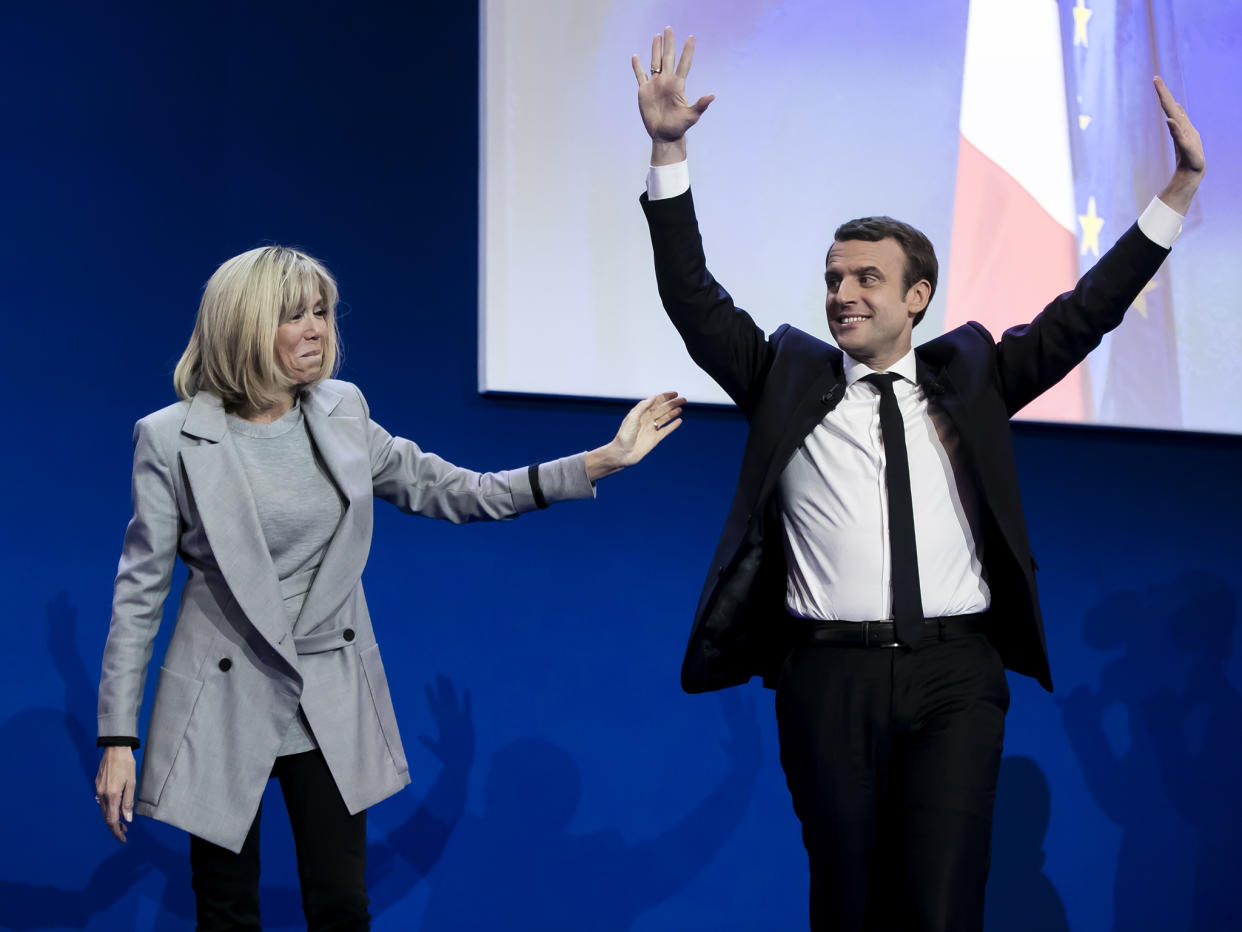How will Theresa May deal with Macron becoming president of France? By having to grow up about Brexit

The months of denial about French politics have now to come to an end. In too many British papers, the only story has been Marine Le Pen. It was underlined on Radio 4’s Today when there was an interminable interview with a spokesman for Marine Le Pen going on and on like a Tory Brexit minister about the evil of immigration and the need to “take back control”.
The media has consistently presented the National Front as a rising force – but that’s all wrong. It has slumped from 28 per cent in regional elections in 2015 or 25 per cent in European Parliament elections in 2014 to just 22 per cent today. Every mainstream right-wing leader in France plus the socialists are now urging a Macron second round victory. As The Independent reported three months ago, Marine Le Pen was never going to be president of France and this morning only the elderly Trotskyist candidate Jean Luc Mélenchon is refusing to endorse Macron.
It is clear now that the Brexit-Trump axis of nationalist populist politics will not sweep over Europe. First in Austria, then in the Netherlands, and now in France, it has been the defenders of Europe who have won. Britain under its hardline anti-EU government and its opposition leader who is incoherent on Europe is now ever more isolated from its former partners and allies across the Channel.
Last week, President Trump told Chancellor Merkel he would prefer to start on a US-EU free trade deal. His promises to Nigel Farage and Theresa May that Brexit Britain would get preferential treatment in Washington have been deleted – as with so many other Trump utterances that instantly become inoperative.
Macron is now designated as an independent centrist. Not quite. He is pretty much François Hollande’s political son, selected, promoted and groomed by the outgoing president and able to do and say the politics that Hollande believed in but was too constrained by the straitjacket of French party rigidities to utter or put into operation.
De Gaulle founded the Fifth Republic in 1958 to put to an end to what he called “regime of parties” that ran the Fourth Republic between 1945 and 1958. In effect, Macron is an updated De Gaulle, and will shape a ministry of all the talents. That is why so many serious politicians – from Manuel Valls on the left to Michel Barnier, the centre-right grandee who is the EU negotiator for Brexit – came out and endorsed Macron.
Like De Gaulle, he has to find a majority in the National Assembly but in all past elections, French voters have always given the man they put in the Elysée a majority in parliament. Hollande had a majority of 86 over his centre-right opponents, though it did him little good as a big majority allows room for rebellions and the Corbyn wing of the French socialists headed by Benoit Hamon made Hollande’s life a legislative misery.
Napoléon always asked when nominating a general: “Is he lucky?” Macron is lucky to arrive in power just as Europe leaves behind the lost decade after the 2007-09 crash. As economic commentators like Hamish McRae and Ed Conway of Sky have noted, EU economies are beginning to grow solidly: 500,000 jobs will be created in Spain this year and 200,000 in France. Productivity is 20 per cent lower in the UK than in France or Germany. The euro is turning out to be an oasis of stability as the pound and dollar oscillate wildly.
There are still major problems, not least the handling the flow of asylum seekers from the Middle East and Libya thanks to the US-UK invasion of Iraq, the Anglo-French initiated toppling of Gaddafi and the Western-supported uprising against Assad in Syria.
Macron at least comes in without preconceptions. If, after her return to Downing Street, Theresa May could turn away from the super-hard Brexit desired by Ukip sympathisers currently in her Government and party, she could forge a defence and security relationship with Macron and put Britain back into play as a European power.
Macron has already had major meetings with Angela Merkel and Martin Schulz and Berlin is looking to re-energise the Franco-German motor industry which has always made Europe work when it starts to turn. There remain major difference on deficit financing, which will be exacerbated if Britain completely stops funding any EU work. That in turn, however, means Britain losing EU collaboration and cash which will damage UK universities and new economic research. Many foreign “big pharma” firms who came to Britain because the EU Medicines Agency was located here will follow it to its new home once forced out of Brexit London.
President Macron will enter the Elysée and prepare for National Assembly elections at the same time as Theresa May heads for her election victory in early June. Can she temper her language and can Labour find words on Europe which make sense? France has now opted for grown-up politics. Britain should do the same.
Denis MacShane is a former Labour minister for Europe and author of 'Brexit: How Britain Left Europe' (IB Tauris)

 Yahoo News
Yahoo News 
